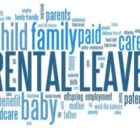I-Team In-Depth
Obamacare: What’s At Stake If The High Court Strikes Down The Law
|
Vyanne Dinh, 21, a senior at New York University, will be paying close attention next month when the U.S. Supreme Court hears arguments in a lawsuit backed by the Trump administration to overturn the Affordable Care Act (ACA). Thanks to the ACA, the law known as Obamacare, a provision allows young adults to remain on their parents’ health insurance policies until age 26. Dinh, of South Windsor, is covered on her mother’s policy. “If I lost coverage under my parents, I would not know what to do,” Dinh said. “Chances are I would have to handle medical expenses out of pocket, which would definitely cause a financial strain and make me hesitant to go to the doctor’s unless it is a dire emergency.”
“I am also worried about COVID because the risks are too high under current circumstances to be uninsured,” said Dinh.

